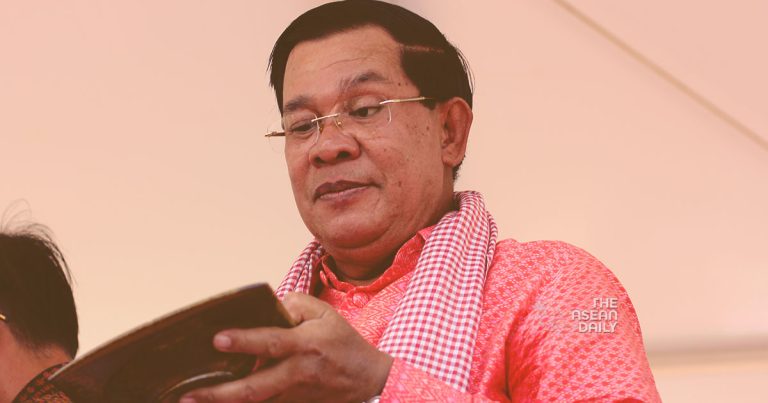14-7-2023 (PHNOM PENH) An 80-episode dramatisation of Cambodian leader Hun Sen’s life is now airing three days a week in the run-up to one-sided national elections. Viewers witness gunfire, truck explosions, and a shooting star announcing the birth of a future ruler. Cambodia goes to the polls on July 23, with the 70-year-old prime minister effectively running unopposed as he seeks to cement his legacy and prepare to hand the reins to son Hun Manet.
Hun Sen has shored up his nearly four-decade rule by playing the West’s desire for democratic reforms against China’s push to build influence in Southeast Asia, collecting copious development aid and foreign investment from both sides over the years. However, critics say his rule has been marked by political repression, environmental destruction, entrenched corruption and uneven economic growth.
“This election, likely Hun Sen’s last as prime minister, is all about securing and enshrining his legacy,” Sebastian Strangio, author of “Hun Sen’s Cambodia”, told AFP. “As such, it is no surprise that Hun Sen’s life story and achievements are receiving such a wide airing.”
The series, “The Son Under the Full Moon”, takes viewers from Hun Sen’s humble beginnings to the hardship suffered by the country and his family under the murderous Khmer Rouge. He and his acolytes maintain it is an accurate depiction of the past, despite appearances by computer-generated Khmer gods and spirits who show up to guide the young Hun Sen.
“This biopic has only one goal: to promote our leader, so that people and the world know the truth about his perseverance from a simple person to a statesman,” CPP spokesman Sok Eysan said.
Once a commander for the Khmer Rouge, Hun Sen ultimately defected to Vietnam as the regime’s purges began to cut deeper into its own ranks. He returned alongside a Vietnamese army that toppled the regime, taking credit for Cambodia’s salvation and being rewarded by Hanoi with his installation as premier in 1985.
Opposition figures who have not fled abroad have been jailed, with activists accusing him of weaponising Cambodia’s legal system against them. Over the years, Hun Sen has also placed relatives and staunch loyalists in key military and government positions, undermining the establishment of a democratic meritocracy.
“He was able to do what he wanted to do domestically by leveraging his international relationships with China, and then fears of the China threat in the West,” the Lowy Institute’s Herve Lemahieu told AFP.
Hun Sen’s handling of global powers is indicative of an unorthodox savvy, analysts say – one matched by his willingness to use harsh measures to quash dissent at home.
“He understands world events without a formal education,” political analyst Virak Ou told AFP. “But also over the past 30 years, he has ruled with an iron fist.”
In the twilight of his rule, Hun Sen seems to be looking desperately to create and control that narrative of his legacy.




